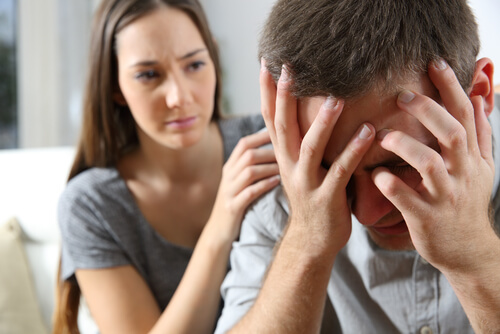Pain - who Feels More? Men Or Women?


Reviewed and approved by the psychologist Gema Sánchez Cuevas

Who feels more pain?
We all know that there are a lot of sayings and traditions. But in this day and age science has come so far it can study just about anything. Except that you can’t do any real studies on who feels more pain from a pinch, because we have no humane way of measuring the same sensation in different people. Or at least not without being subjective.
But even though pain is a personal perception, there have still been some studies. One of the most celebrated comes from Stanford University. According to the study’s researchers, women usually report more pain in a wider range of stimuli, if we compare it to the pain feedback that men report. But this seems more quantitative than qualitative. That is, it’s not a gender-based reaction to a specific stimulus.

There are also some factors that might contaminate the conclusions they make from the results. For example, there’s the fact that women are usually more communicative than men. So then guys, men of few words, report stimuli that are less painful or less complete. Another variable that might contaminate the results is men’s desire not to show any weakness, since we “assume” this is a characteristic of their gender.
The study of pain based on gender
The researchers at Stanford wondered who felt more pain, men or women? To answer this question they gathered information from more than 11,000 patients with circulatory, digestive, respiratory, and musculoskeletal problems.
According to the data they got, it seems like women reported a slightly higher intensity than men. In fact, they used a scale between 1 to 11, and women were a point higher. But there’s still a black spot stuck to this study because of the biological differences between men and women, and differences in how they report pain.
So who feels more pain?
As you can see we still have no answer to this question. Who feels more pain, him or her? For one thing, the studies also take into account variables like menstrual cycles, which cause an infinity of aches and pains for women. So any study should be done with totally equal conditions between males and females in a similar state. Otherwise there are a lot of different factors, like menstrual cycles, that could get in the way of an accurate result.
But there are also reports that suggest, for example, that women go to the doctor more, usually with more severe, long-lasting, and chronic pain, compared to men. Along those lines, it also seems like women suffer from higher levels of stress, which gets in the way of any accurate results, since it makes their experience of pain worse.
More facts about pain
It seems like men are more precise when it comes to pointing out where exactly they’re hurting. Meanwhile women point out areas and not specific spots. There are also some other interesting facts, like chronic pain, which is somewhat more common for women. In fact, there are also diseases like fibromyalgia, which is nearly exclusive to women and comes along with muscular fatigue and pain. This then makes their perception of pain even more intense.

And men actually have a protein called GIRK2 that helps them a lot when it comes to tolerating pain. But it seems like women have learned to live with theirs, because they’ve spent centuries getting through higher levels of stress, menstrual pain, birth, etc.
So if we look at the data from the study, it seems logical to think women suffer from more pain than men. But we have no way of knowing which gender can better put up with pain from the same stimulus. But it does seem like women have learned better how to live with their suffering.
This text is provided for informational purposes only and does not replace consultation with a professional. If in doubt, consult your specialist.








